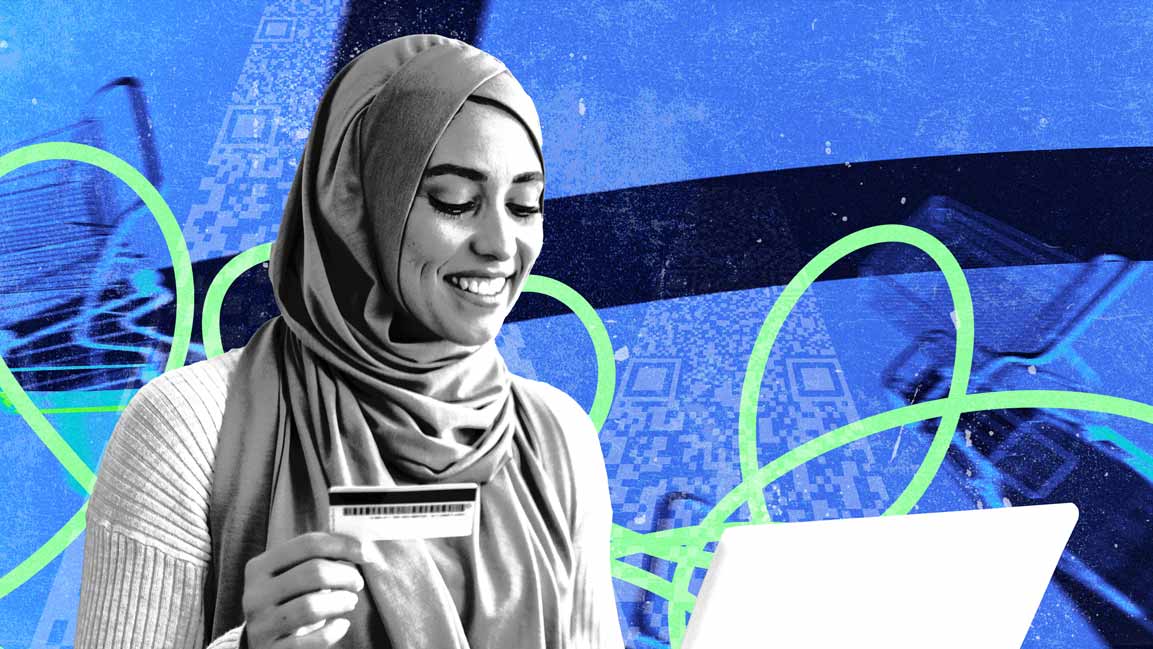- | 9:00 am
Amid tough economic times, Egyptian consumers are opting for BNPL
BNPL platforms are enhancing their services with features that make them more convenient for users.

If you’ve been shopping for summer sale bargains, you’ll have come across the tempting opportunity to buy now, pay later (BNPL), which has expanded rapidly worldwide in the last few years.
In Egypt, however, with the rising cost of living due to economic instability and skyrocketing inflation rates, BNPL platforms are seeing explosive growth. Cash-strapped people are using BNPL for occasional treats and for day-to-day essentials.
Since March 2022, Egypt has raised key interest rates by 19% (1900 basis points) and devalued the Egyptian pound against the US dollar four times, resulting in a more than 223% increase in the dollar’s value against the local currency.
Last week, the government announced a second increase in fuel prices of up to 15%, expected to contribute to the current inflationary wave.
Meanwhile, Prime Minister Mostafa Madbouly revealed plans to gradually raise prices for all services, including fuel and electricity.
“With prices constantly rising, even smaller purchases like regular shopping for clothes and food are becoming increasingly hard to maintain,” says 24-year-old Mariam Ahmed, adding that big purchases, such as buying a car or an apartment, now seem impossible.
The major BNPL industry providers say it is popular with consumers, who can usually pay for their purchases in installments.
Since BNPL providers offer easily accessible, hassle-free financial solutions to Egyptians during economic uncertainty, Ahmed Wadi, Founder and CEO of Money Fellows, says people are becoming increasingly reliant on this mode of credit.
THE RISE OF BNPL
BNPL payments in Egypt have grown significantly over the past few years. A recent report forecasts that they will grow by 38.6% annually, reaching $2.34 billion in 2024.
The sector is expected to register a compound annual growth rate (CAGR) of 25.7% from 2024 to 2029. Consequently, Egypt’s BNPL gross merchandise value is projected to rise from $1.69 billion in 2023 to $7.35 billion by 2029.
Habiba Naguib, Senior Director of Strategy and Market Expansion at Valu, says BNPL and consumer finance have significantly helped customers shift from relying on informal credit methods to more flexible financing options.
“Prior to the emergence of BNPL and consumer finance, customers without traditional bank credit relied on informal merchant credit, often secured with a signed promissory note. The BNPL and consumer finance companies helped these customers gain access to finance.”
Naguib adds that BNPL has enhanced financial inclusion by providing credit access to individuals without traditional banking relationships.
Additionally, it offers customers more financing choices, faster onboarding processes, and flexible payment plans that cover a wide range of products and services in Egypt.
“This helps customers to manage their spending and have access to solutions for their needs and wants, from grocery shopping, health care, and education to fashion, auto financing, home finishing, and more,” Naguib adds.
CONSUMER BEHAVIOR AND RISKS
Ahmed notes that there are certain risks to consider when using BNPL platforms. “It’s easy to get carried away; you must seriously consider your ability to keep up with payments. I’ve seen friends become overly dependent on them.”
Nour Hamed, 29, recalls her first BNPL purchase three years ago, when her household’s washing machine broke down, and she needed a replacement immediately. “I found it convenient for urgent purchases.”
Hamed notes that using these apps has kept her spending habits the same; she treats them like a credit card. However, she adds maintaining this approach has become challenging due to the rising interest rates on these platforms.
Hamed also highlights how tricky these apps can be if you don’t read the fine print. “Aside from the interest rates, administrative fees apply to each transaction. These details are easy to miss when you’re making urgent purchases.”
Lending demand has increased over the last two years, says Wadi. “The economic hardship has impacted people’s purchasing behavior and has made them more reliant on the need for instant cash. A lot of our customers require lending products to cover tuition fees, medical fees, and emergency costs.”
Currency devaluation and rising inflation have increased interest in financial services, particularly consumer finance. According to Naguib, people now seek the best and most flexible payment terms and know their many options. They desire the best pricing and flexible terms to finance their needs. Customers are using BNPL and consumer finance companies to access credit and use it as a flexible payment option.
“We’ve seen a significant increase in small ticket size transactions, especially in grocery stores and marketplaces,” adds Naguib.
In light of these recent economic hardships, BNPL platforms have enhanced their services with features that make them more convenient for users.
Recently, Valu introduced more features to enhance flexibility, including launching its new program, Ulter, that finances up to $1.25 million with instant approvals and flexible repayments.
Given the current surge in these platforms, what’s next for BNPL?
All agree that the current boom is driven primarily by Egypt’s economic crisis, changing customer attitudes, and digital transformation. And these factors will continue to boost BNPL adoption in the coming years.“We will witness increased collaboration between payments and financing companies, which will revolutionize traditional models and lead to more integrated financial applications,” says Naguib. “Government initiatives such as E-KYC regulations will help the growth of the entire ecosystem.”







































